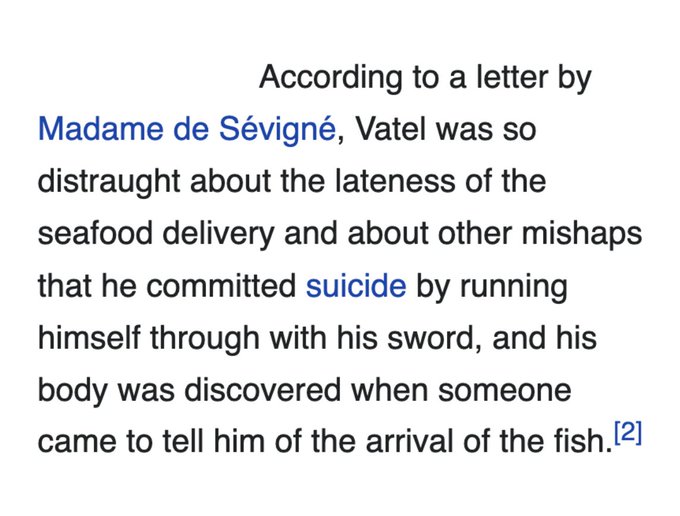The cheap radio hack that disrupted Poland's railway system

From Andy Greenberg at Wired: "Since war first broke out broke out between Ukraine and Russia in 2014, Russian hackers have used some of the most sophisticated hacking techniques ever seen in the wild to destroy Ukrainian networks, disrupt the country’s satellite communications, and even trigger blackouts for hundreds of thousands of Ukrainian citizens. But the mysterious saboteurs who have, over the past two days, disrupted Poland's railway system appear to have used a far less impressive form of technical mischief: Spoof a simple radio command to the trains that triggers their emergency stop function. On August 25 and 26, more than 20 of Poland's trains carrying both freight and passengers were brought to a halt across the country. The saboteurs reportedly interspersed the commands they used to stop the trains with the Russian national anthem and parts of a speech by Vladimir Putin.
Dave the Potter made his mark on history while enslaved in the 19th century

From Sarah Dolezal for JSTOR Daily: "From the trenches of the Antebellum South, enslaved potter David Drake (ca. 1801-1874), otherwise known as “Dave the Potter,” constructed hundreds if not thousands of functional pots while working on plantations and in factories in Edgefield, South Carolina, a region now famous for its ceramics. Dave was heralded for his enormous storage jars and for writing on his pots. Most of the potters at this time, those who were enslaved as well as the white laborers who were not, did not inscribe or mark their work in any identifying way. Dave was different. He signed his name on the walls of his pots. He engraved markings, for example, such as forward slashes and circled X’s that may have been a way to keep inventory, or that hearkened to ancestral roots. Dave also wrote dates, the location where he fashioned the pots, lines of poetry, and Christian proverbs. All of these practices set him apart."
The man who beat the lottery, and still lost

From Dan Lewis at Now I Know: "In the 1960s, Mandel won the lottery in his home country of Romania the regular way — with a little bit of luck. Well, that and some math. Mandel enlisted four friends who pooled their resources and their time and collectively bought 1,140 tickets for each lottery offered. Because of the secondary prizes, they were able to do so without going broke, and their little syndicate won the grand prize. Mandel used the money to flee Romania, which was under Soviet control at the time and ended up in Australia after briefly living in Israel. And when in Australia, he realized that the lottery there was even easier to beat than the Romanian one. And at about the same time, new technology emerged that made buying all of those tickets easier: computers. He brought on more than 2,000 investors to help fund his escapade and got to work."
Why do we often stick out our tongues while performing a difficult task?

From R. Douglas Fields for Quanta magazine: "One day, while threading a needle to sew a button, I noticed that my tongue was sticking out. The same thing happened later, as I carefully cut out a photograph. Then another day, as I perched precariously on a ladder painting the window frame of my house, there it was again! What’s going on here? I’m not deliberately protruding my tongue when I do these things, so why does it keep making appearances? After all, it’s not as if that versatile lingual muscle has anything to do with controlling my hands. Right? Yet as I would learn, our tongue and hand movements are intimately interrelated at an unconscious level. This peculiar interaction’s deep evolutionary roots even help explain how our brain can function without conscious effort."
Insane Clown Posse fans often seem deranged, but one fan found a community

From Micco Caporale for Chicago Reader: "The Gathering of the Juggalos is an annual music festival founded by Detroit rap duo the Insane Clown Posse in 2000. It’s grown into a four-day dark carnival, currently held at a historic rock venue called Legend Valley in Thornville, Ohio. For more than a decade, the event’s sensational aspects have been the subject of innumerable Vice articles, YouTube documentaries, and the like. In 2013 a journalist for Chicagoist reported on meeting a man at the Gathering who publicly cut off his nipple for a guy who wanted to buy it and sew it to his hat. Longtime attendees describe it as a family reunion—a common outlook in subcultures that hold any kind of annual gathering. But this subculture was built in the 90s by rust-belt freaks, heads, and hillbillies, so it combines the midwestern spirit of generosity, the ask-a-punk DIY mentality, and a welcoming embrace of the outcast or marginalized."
A visit to the fake British town created by Charles III, the King of England

From Jimmy McIntosh for The Fence: "Much has been written about the first foray into town planning of King Charles III, né His Royal Highness Charles Mountbatten-Windsor, Prince of Wales. It’s either a utopia or a twee hell, depending on who you read. You step off an empty, single-decker bus onto the edge of an empty, misty town square. As it pulls silently away, you’re confronted with a vaguely arts-and-craft monolith with a fake bell tower, the gabled awning a distant cousin of an out-of-town Tesco megastore. Visibility is poor, but in the distance you can just about make out the looming nine-foot bronze frame of a war hero, perched broodily on a plinth of Portland stone. Walk closer and from the fog emerges a grimacing five-storey neoclassical nightmare and a weird, yellow porticoed palace. The bell tower’s a bridal shop. The palace is a block of flats. The war hero is the Queen Mother. Confused? Welcome to Poundbury."
The inventor of whipped cream committed suicide after a late delivery
From Depths of Wikipedia on Twitter




